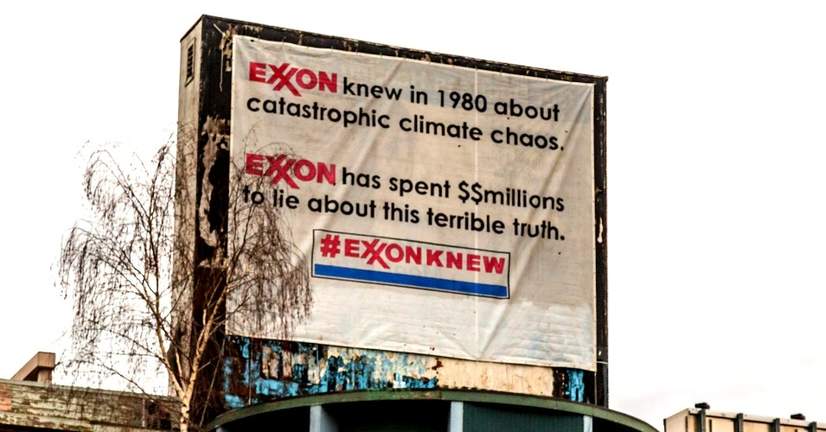The news this week that Big Oil behemoths Exxon and Chevron are to to join the “Oil & Gas Climate Initiative” was met with much celebration.
Announcing their membership, the OGCI made the bold claim that: “With these additions, OGCI members now represent around 30 percent of global oil and gas production and supply close to 20 percent of global primary energy consumption … making its members’ collaborative effort in support of the Paris Agreement, a significant global action.”
But while there was some rejoicing that US companies had joined a supposedly progressive oil group that had come together to promote low carbon investment, others remembered to heed Business Green’s Michael Holder’s query as recently as 2017: “The OGCI: Oil industry gamechanger or pro-gas greenwash?”
So which is it? Let’s take a look at what the OGCI has done so far.
A few weeks before the annual climate talks in Bonn, Germany, the OGCI announced a new $1 billion fund to go towards carbon capture and storage technology research and development.
Sounds good, right?
But climate campaign group 350.org called the announcement “outrageous filibustering from an industry with no future” and analysts at the Energy and Climate Intelligence Unit think tank said the fund was nothing more than a “drop in the ocean” for the companies.
Then in November 2016 the OGCI announced a strategy to limit warming to two degrees above pre-industrial levels on the day the Paris Agreement came into force. At the core of the groups plan was to set up a $1 billion (£80 million) fund to back gas instead of coal, clean up the industry’s own emissions, invest in carbon capture and storage (CCS) technology, and make cars more efficient.
The plan was called “sweaty, desperate greenwashing” by Grist.
Like what you’re reading? Donate here to support DeSmog UK‘s journalism today
Back in 2015, the OGCI announced grand a Joint Collaborative Declaration calling for “effective climate change agreement at COP21”.
DeSmog UK pointed out at the time that there were major issues missing from this declaration (which had been issued on behalf of the CEOs of Total, Statoil, BP, Shell, BG Group, Saudi Aramco, Pemex, Sinopec, Eni, Reliance, and Repsol).
They included: no commitment to works towards effective carbon pricing both globally and at national level, anonus on governments to first create policy framework without a commitment to lobby for this, no commitment to stress test business models for future 2ºC consistent scenarios to avoid value destruction, no commitment to emissions or energy transition targets over the next 30 years to 2050, no commitment to bring all natural gas fugitive emissions across full supply chain below on percent, and no quantitative commitment to increase research and development spending on clean and renewable energy.
So, perhaps not such a grand announcement after all.
We’re told that the OGCI will hold its annual meeting with stakeholders in New York next week during Climate Week.
But while Exxon and Chevron and Occidental Petroleum are joining, India’s Reliance Petroleum (which is now part of Reliance Industries) has quit the coalition. While Reliance is not a major player, it means that the OGCI has no Indian member – and India is a major part of the climate change problem
So what is the significance of Exxon and Chevron joining?
Amy Harder, who broke the story for Axios was gushing about the move:
“The companies are the first U.S.-based members of the group, called the Oil and Gas Climate Initiative. This is one of the strongest signs yet of how America’s biggest oil companies, under pressure from investors and lawsuits, are joining most other U.S. corporations in working to reduce greenhouse gas emissions despite President Trump reversing America’s course on the matter.”
And yet, it really isn’t.
In a draft press release quoted by Axios, the CEO of Exxon, Darren Woods says:
“It will take the collective efforts of many in the energy industry and society to develop scalable, affordable solutions that will be needed to address the risks of climate change.”
This kind of dissembling flies in the face of everything we know about the realities of fossil fuels and our climate crisis.
The OGCI comes across as a club for CEO posturing. Our Canadian sister site, The Narwhal, called the OGCI a “new climate denialism – more nuanced and insidious, but just as dangerous.”
Before the Paris Agreement, the OGCI issued calls not only for a global climate agreement, but also for a global carbon pricing system.
But as research by the UK-based InfluenceMap uncovered, “behind the scenes, however, [these companies] are systematically obstructing the very laws that would enable a meaningful [carbon] price.”
Contrary to Darren Woods line, we have all the “scalable affordable” solutions we need right now. What is preventing us implementing them is the sort of disinformation and denial we see at play right here; It is Big Oil companies saying they’re going to take action, while actually doing very little at all.
It may be a baby step in the right direction. But all Exxon et al really did this week was take the smallest, easiest, currently most meaningless, action available to them: They joined a greenwash group.
Image: Energy Source
Subscribe to our newsletter
Stay up to date with DeSmog news and alerts






